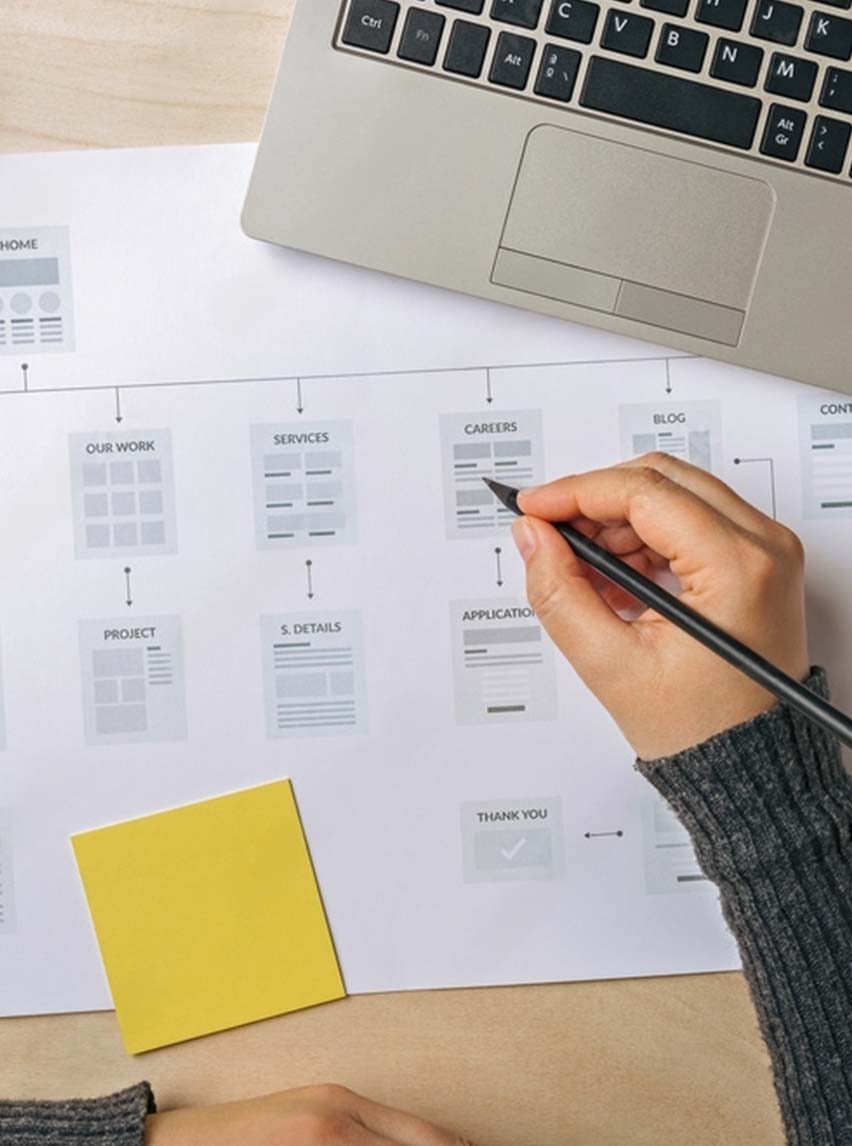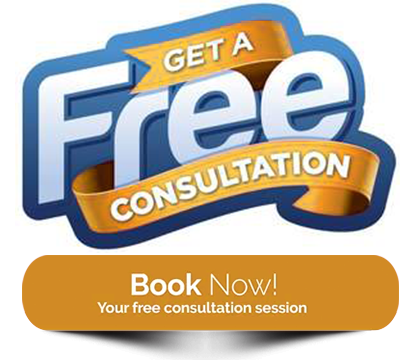Web Designer
Near Gulfport, MS
Understanding the Difference: Web Developer vs. Web Designer:
Before delving into the intricacies of crafting your digital masterpiece, it's essential to understand the distinct roles that shape your online presence. A web developer is the architect of functionality, employing a mastery of programming languages like HTML, CSS, and JavaScript to construct the backbone of your website. They ensure seamless navigation, responsive design, and optimal performance to guarantee a user-friendly experience.
Conversely, a web designer is the artist who brings aesthetics to the forefront. Armed with a keen eye for design principles and an arsenal of creativity, the web designer crafts visually appealing layouts that captivate and engage visitors. Their expertise lies in crafting user-friendly interfaces that make navigation intuitive and leave a lasting impression.
Throughout the rest of this guide, we'll delve deeper into the intricacies of each role, helping you make an informed decision that aligns with your specific goals and requirements.
Remember, your website is more than a digital presence; it's a reflection of your business and a platform to connect with your audience. As you embark on this journey, keep your vision clear and your ambition high. Let's take the first step toward turning that vision into an extraordinary website.
Here's a pro tip: visit their website and add /wp-admin/ to their URL. If you see a WordPress login (🚩), that's a red flag. They may lack the coding prowess to not only develop their own website; but yours as well. In a recent study conducted by W3Techs; Google, Bing, and Yahoo established the web development standards back in 2013. These standards are deeply rooted in coding languages such as HTML, CSS, JS, and PHP. Without a thorough knowledge of these coding languages, you're putting your brand's future at risk, as 97% of websites still rely on these fundamental languages. Trusting your brand's future to code-savvy experts is critical.
Defining Your Project Scope and Goals:
As you embark on the exhilarating path of website creation, clarity becomes your compass. Define your project's scope and set clear goals to ensure your journey is focused and purposeful. Are you envisioning an e-commerce powerhouse that seamlessly showcases your products to a global audience? Perhaps you're curating a blog where your expertise shines, or a captivating portfolio to showcase your creative endeavors. The possibilities are as diverse as your ambitions. Understanding your target audience is pivotal. Who are they? What do they seek when they visit your site? Tailoring your website to meet their needs will create an experience that resonates and fosters lasting connections.
Consider the features and functionality that will elevate your website. Do you envision interactive elements that engage visitors, or perhaps integration with social media platforms to amplify your online presence? Additionally, think about any special requirements, such as appointment scheduling, payment gateways, or multilingual support. Defining these elements will be instrumental in communicating effectively with potential web developers or designers. Crafting a comprehensive and engaging website requires a blueprint, and that's precisely what this phase provides. By mapping out your project scope and setting tangible goals, you're not only streamlining the development process but also ensuring that your chosen professional understands your vision in its entirety. Stay tuned as we dive deeper into the journey of bringing your vision to life. The next section will guide you through the process of researching and shortlisting the professionals who will be instrumental in crafting your digital masterpiece.
Researching and Shortlisting Professionals:
Now that your project's scope and goals are clearly defined, it's time to embark on the quest to find the perfect web developer or web designer. This phase is akin to curating a team of skilled artisans who will collectively transform your vision into a digital masterpiece.
Start by exploring the portfolios of potential candidates. A well-crafted portfolio is a window into their capabilities, showcasing their expertise and style. Look for examples of projects that resonate with your vision. Assess their ability to capture diverse aesthetics and navigate different industries – this flexibility is a hallmark of a seasoned professional. Experience speaks volumes. Delve into their track record and delve into the projects they've brought to life. Have they successfully executed projects similar to yours? This alignment between their past work and your aspirations is a testament to their potential to bring your vision to life.
Expertise is the cornerstone of excellence. A web developer's command over programming languages like HTML, CSS, and JavaScript is a testament to their technical prowess. For web designers, a fluency in design tools like Adobe Creative Suite, coupled with a profound understanding of user experience (UX) principles, ensures a seamless blend of aesthetics and functionality.
As you explore potential candidates, envision a collaboration that feels like a partnership. Effective communication and shared enthusiasm are catalysts for success. Pay heed to how they articulate their approach and respond to your inquiries. The synergy you feel at this stage provides a glimpse into the collaboration that awaits. Gathering this insight arms you with the knowledge needed to create your shortlist of potential collaborators. In the upcoming section, we'll delve into assessing the technical skills that underpin a successful web development journey. Stay tuned as we unravel the intricate layers that contribute to your digital masterpiece.
Assessing Technical Skills:
In the ever-evolving realm of web development and design, technical skills form the bedrock of a successful project. Just as a skilled artisan wields their tools to craft a masterpiece, a web developer's and web designer's proficiency in their craft is instrumental in bringing your digital vision to life.
For web developers, the artistry lies in code. Proficiency in languages like HTML, CSS, and JavaScript enables them to sculpt the interactive and dynamic features that make your website engaging and functional. Did you know that over 50% of global web traffic comes from mobile devices? This underscores the importance of responsive design, ensuring your website adapts seamlessly to screens of all sizes. As Google's algorithms increasingly prioritize mobile-friendly sites, a web developer well-versed in responsive design ensures your website remains visible and accessible to your audience.
Web designers, on the other hand, are the virtuosos of aesthetics. Their canvas is the digital interface, where colors, typography, and layout meld into a symphony of visual delight. Studies show that users form opinions about a website's credibility and usability within a mere 50 milliseconds of visiting. This first impression is a testament to the power of design. A web designer's acumen in user experience (UX) principles influences not only how visitors perceive your website but also how effectively they navigate and interact with it. In the words of Steve Jobs, "Design is not just what it looks like and feels like. Design is how it works." This sentiment rings especially true in the digital realm, where form and function harmonize to create an exceptional user experience.
As you evaluate potential collaborators, pay close attention to their technical prowess. A web developer's ability to craft clean and efficient code and a web designer's skill in creating intuitive interfaces are the building blocks of your online masterpiece. This technical finesse, combined with a passion for innovation and a commitment to staying abreast of industry trends, ensures your website is not only visually captivating but also technically sound. Stay tuned for the next segment, where we delve into the critical aspects of collaboration and communication that lay the foundation for a successful web development project.
Collaboration and Communication: Breathing Life Into Your Vision:
With your project goals in focus and your shortlist of potential collaborators in hand, we now step into the realm of collaboration and communication – the heart and soul of turning your vision into a remarkable website.
Imagine this process as a symphony where you, the conductor, guide the harmonious interplay of ideas and expertise. Effective communication forms the basis of this orchestration. A responsive web developer and designer are attentive listeners, eager to translate your vision into tangible digital elements. Regular updates and open dialogue ensure your voice is woven into every pixel and line of code.
Conclusion:
The renowned entrepreneur, Henry Ford, once said, "Coming together is a beginning, staying together is progress, and working together is success." This sentiment echoes through the world of web development and design. Your chosen collaborators should be more than professionals; they should be partners who share your ambition and propel it forward. As your website takes shape, imagine the satisfaction of seeing your ideas evolve into an immersive digital experience. The thrill of watching your vision come alive is unparalleled, and this journey of creation is a testament to your commitment and the expertise of your chosen team.
Now, here's the intriguing part: There's a crucial element we've intentionally left out of this guide, a missing piece that can only be uncovered by taking that first step. As you embark on the website development process, you'll discover an essential aspect that enhances your project's success. To unveil this insight, engage with your Person of Contact (P.O.C) at Standard American Web – your guiding light in this transformative journey. Are you ready to see your vision materialize? The next step is just a click away. Visit our website and click the "Hire Us" button in the navigation at the top of the page. Alternatively, you can call us at 1(877) 777-2397. Your dream website awaits, and with Standard American Web, the possibilities are limitless. Congratulations on taking the first step toward an extraordinary online presence. We look forward to collaborating with you and crafting a website that leaves an indelible mark on the digital landscape.
At Standard American Web™, we are here to make your website development as painless as possible. Give us a call.
FAQs:
Q: 1: What exactly does a web designer do?
A: Web designers play a pivotal role in crafting the online experiences you encounter daily. They are the creative minds behind the look, feel, and functionality of websites. To excel in this field, web designers master various programming languages such as HTML, CSS, and JavaScript. These languages are the building blocks of the internet, allowing them to translate ideas into visually captivating and interactive websites. Web designers are not just code enthusiasts; they are also artists who understand the principles of design, such as layout, color theory, and typography. They carefully choose colors that resonate with your brand, arrange elements to create intuitive navigation, and select fonts that convey your message effectively.
Moreover, web designers are problem solvers. They ensure that your website is user-friendly, responsive (meaning it adapts seamlessly to different devices), and accessible to individuals with disabilities. They take into account factors like load times, ensuring that your website loads quickly, which is crucial for retaining visitors. In essence, web designers are the architects who transform your digital vision into reality. They balance technical expertise with creative flair to create websites that not only look stunning but also function flawlessly, ultimately providing users with a delightful online experience. So, when you're searching for a "web designer near me," you're seeking a skilled professional who can bring your online dreams to life.
Q: 2: How can I find a reliable web designer near me?
A: Finding a reliable web designer near you is a crucial step in bringing your online vision to life. Here's a pro tip to help you discover the perfect web designer: visit their website and add /wp-admin/ to their URL. If you see a WordPress login (🚩), that's a red flag. They may lack the coding prowess to not only develop their own website but yours as well. In a recent study conducted by W3Techs, major search engines like Google, Bing, and Yahoo established web development standards back in 2013. These standards are deeply rooted in coding languages such as HTML, CSS, JS, and PHP. Without a thorough knowledge of these coding languages, you're putting your brand's future at risk because 97% of websites still rely on these fundamental languages. So, when searching for a reliable web designer near you, it's essential to consider their technical expertise. A proficient web designer should not only have a strong portfolio and design skills but also possess a deep understanding of web development languages. This knowledge allows them to create websites that not only look visually appealing but also function flawlessly.
Start your search by asking for recommendations from friends, colleagues, or fellow business owners. Personal referrals often lead to talented and trustworthy designers. Additionally, browse online directories and platforms like LinkedIn to identify potential candidates. When you've compiled a list of potential web designers, take the time to review their portfolios and websites. Look for examples of their work, paying close attention to user experience, aesthetics, and functionality. Investigate whether they have experience in your industry or with similar projects.
Contacting potential web designers and having initial conversations can also provide valuable insights. Discuss your project requirements, budget, and timeline. A good web designer will listen to your needs, offer insights, and communicate clearly. Don't hesitate to ask for references or read online reviews to gauge their reputation and past clients' experiences. A reliable web designer should have a track record of delivering quality work and meeting deadlines. Ultimately, finding a reliable web designer near you is about balancing design creativity with technical expertise. The perfect designer should not only align with your vision but also have the coding skills to make it a reality. By following these tips and trusting your instincts, you'll be well on your way to partnering with the right web designer to elevate your online presence.
Q: 3: What qualifications should I look for in a web designer?
A: Look for a designer with a strong portfolio, experience in your industry, and good communication skills. It's important they understand your vision.
Q: 4: How much should I expect to pay for web design services?
A: Prices vary widely, but it's essential to get quotes and discuss your budget upfront. Some charge hourly, while others offer fixed packages.
Now, let's look at some real-world data to provide a sense of average costs:
- ⋅ According to a survey by WebsiteBuilderExpert, small business owners reported spending an average of $2,000 to $25,000 on website design, with many falling in the $6,000 to $15,000 range.
- ⋅ A report by Clutch, a B2B research firm, suggests that the median cost for website design services in the United States is around $6,000 to $12,000.
- ⋅ For e-commerce websites, Shopify estimates that businesses can spend anywhere from $10,000 to $50,000 on custom design and development.
- ⋅ Freelance web designers may charge hourly rates ranging from $50 to $150, with variations based on location and expertise.
Remember that these figures are averages, and your specific project's cost may differ. It's essential to discuss your project's requirements with potential web designers or agencies to receive accurate quotes tailored to your needs. Ultimately, the investment you make in web design should align with your business goals, brand identity, and the user experience you aim to deliver to your website visitors.
Q: 5: Do I need a custom website or can I use a template?
A: It depends on your needs. Templates are cost-effective, but custom designs provide more flexibility and uniqueness.
Q: 6: What's the typical timeline for a web design project?
A: Timelines vary, but a simple site might take a few weeks, while complex projects can take several months. Discuss this with your designer.
Q: 7: How can I make sure my website is mobile-friendly?
A: Ensure your designer uses responsive design techniques. This guarantees your site will look and function well on mobile devices.
Q: 8: What information should I provide to my web designer?
A: Give them a clear idea of your business, target audience, and any specific features you want on your site. The more details, the better!
Q: 9: What's the difference between web design and web development?
A: Designers focus on the look and feel of a website, while developers handle the technical aspects like coding and functionality.
Q: 10: Can a web designer help with SEO and online marketing?
A: Google My Business (GMB) is a powerful tool for local businesses, and understanding its advantages can be a game-changer for your online presence. Let's explore the benefits in more detail. First and foremost, GMB enhances your local visibility. When potential customers in your area search for products or services related to your business, a well-optimized GMB listing increases your chances of appearing in their search results. This visibility is critical for attracting local traffic and potential customers. Your GMB listing serves as a digital business card, prominently displaying essential information such as your business name, address, phone number, and operating hours. This makes it convenient for users to access vital details about your business at a glance.
Customer reviews and ratings are vital components of your GMB listing. Positive reviews build trust and credibility among potential customers, influencing their decision-making process. Engaging with reviews, both positive and negative, demonstrates your commitment to customer satisfaction and improves your local search ranking. Moreover, GMB provides a platform for sharing timely updates, offers, events, and more through Google Posts. Crafting engaging Google Posts enhances your local engagement and ensures your audience is well-informed about your business's latest developments.
Now, here's an important tip: If you're interested in boosting your GMB listing's performance further, some web designers offer SEO services or can collaborate with SEO experts. It's crucial to discuss this upfront if it's a priority for you. Having a well-optimized GMB listing aligns with your overall SEO strategy and can significantly improve your local search ranking. If you're ready to take your GMB listing to the next level and ensure it's fully optimized, we invite you to CLICK HERE for a comprehensive SEO analysis of your website. This analysis will help you identify areas for improvement and enhance your online presence, ultimately driving more traffic and potential customers to your local business.
Q: 11: What platform should I choose for my website?
A: Your designer can recommend platforms like WordPress, Wix, or Shopify based on your needs, but it ultimately depends on your goals.
Q: 12: How do I maintain my website after it's built?
A: You can either hire someone for ongoing maintenance or learn to use content management systems like WordPress yourself.
Q: 13: What should I look for in a web hosting provider?
A: Seek reliable hosting with good customer support and the resources your site needs to perform well.
Q: 14: Can my designer help with branding and logo design?
A: Many designers offer branding services, including logo design, to create a cohesive online presence for your business.
Q: 15: What's the importance of user experience (UX) in web design?
A: UX ensures that visitors have a positive experience on your site, which can lead to better engagement and conversions.
Q: 16: How can I make my website stand out from the competition?
A: Your designer can incorporate unique design elements, compelling content, and a strong value proposition to set you apart.
Q: 17: Do I need an e-commerce feature on my website?
A: If you plan to sell products or services online, an e-commerce feature is essential. Your designer can help you set this up.
Q: 18: What should I do if I want to update my website's design?
A: Contact your designer to discuss a redesign or update. They can refresh your site to keep it current and appealing.
Q: 19: Can I optimize my GMB listing for specific keywords?
A: Yes, they can implement security measures to protect your site from threats like hacking and malware.
Q: 20: What ongoing support can I expect from my web designer after the project is complete?
A: Discuss post-launch support and maintenance with your designer. Many offer ongoing assistance for updates and troubleshooting.
























